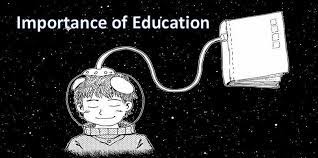Human relationships are vital for our well-being, influencing our mental and emotional health significantly. Strong and healthy relationships foster a sense of belonging, support, and fulfillment. Yet, nurturing these relationships demands effort, time, and skills, all of which can be acquired through education.
Communication Skills for Strong and Healthy Relationships
Effective communication forms the strong base of successful relationships. Learning to express oneself clearly, listen actively, and empathize with others are essential skills. Education in building strong and healthy relationships equips individuals with verbal and nonverbal communication techniques, active listening strategies, and conflict resolution methods.
Developing Emotional Intelligence
Emotional intelligence is the ability to understand and manage emotions, and is crucial in navigating complex human interactions. Education helps in developing emotional regulation, empathy, and effective communication, empowering individuals to handle relationship challenges adeptly.
Conflict Resolution Strategies
Conflicts are inevitable in any relationship, but how they are managed determines the relationship’s health. Education offers frameworks for resolving conflicts through active listening, compromise, and negotiation, preserving the integrity of relationships.
Empathy and Understanding
Empathy and understanding deepen connections and foster trust and respect in relationships. Education teaches individuals to cultivate empathy, actively listen, validate emotions, and appreciate diverse perspectives, strengthening interpersonal bonds.
Cultural Competence
In our diverse world, cultural competence is essential for fostering strong relationships across different backgrounds. Education imparts knowledge of diverse cultures, promoting understanding and communication across cultural boundaries.
n
Essential Factors in Relationship Education for Cultivating Strong and Healthy Bonds
Self-awareness, boundaries, trust, forgiveness, support networks, love languages, and resilience are pivotal in building strong relationships.
- Self-awareness: Education facilitates self-discovery, aiding individuals in understanding their values and emotions, crucial for effective communication.
- Boundaries: Establishing and respecting boundaries is vital, and education provides guidance on setting and communicating boundaries respectfully.
- Trust: Education equips individuals with skills to build trust through honest communication, reliability, and vulnerability.
- Forgiveness: Learning to forgive and reconcile after conflicts is essential for relationship maintenance, and education provides tools for forgiveness and reconciliation.
- Support Networks: Building a strong support system is essential, and education offers resources for cultivating supportive relationships within friends, family, and communities.
- Love Languages: Understanding and expressing love in ways meaningful to partners is crucial, and education enlightens individuals about different love languages.
- Resilience: Education fosters resilience by providing strategies to overcome relationship challenges and practice self-care.
Final Thoughts
Education is instrumental in cultivating strong and healthy relationships. By honing communication skills, emotional intelligence, conflict resolution techniques, empathy, and cultural competence, individuals enhance their relationships and overall well-being. Through education, one can acquire the necessary skills to nurture fulfilling and meaningful connections with others.

0 Comments